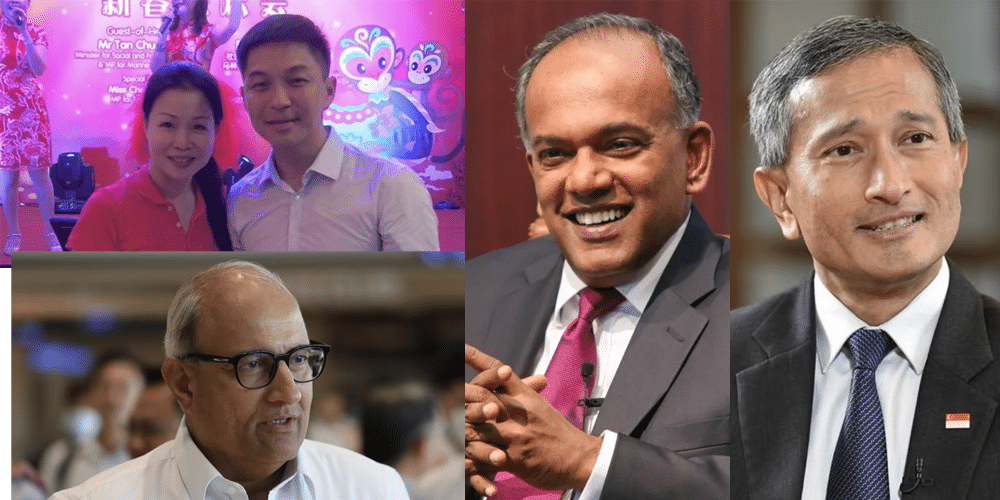While their book is neither predictive nor hopeful of the People’s Action Party (PAP) reformation, academicians Cherian George and Donald Low say that they still feel an obligation to push for that change anyway.
“We are interested in the possibility of change because we think it’s something good for Singapore,” said Prof George in the virtual launch of PAP v PAP: The Party’s struggle to adapt to a changing Singapore, which he co-authored with Prof Low.
The virtual talk, organised by Academia.sg, featured the two professors in conversation with fellow academicians Walid Jumblatt Abdullah and Teo You Yenn as they dove into the ideas presented in the book.
PAP v PAP is an anthology that features both professors’ past commentaries on Singapore politics as well as new essays in response to the events of 2020 thus far.
The book explores one aspect of the inner struggle of Singapore’s ruling People’s Action Party — that is, the struggle “between a conservative attachment to what worked in the past, and a boldly progressive vision for the future.”
Both Prof George and Prof Low are well-known critics of the Singapore establishment and moved to Hong Kong to continue with their respective lecturing careers.
Prof Low noted that one of the responses they have received is that the book comes across as a defence of Singapore’s elite governance.
He pointed out the rise of nativist and populist backlash against elites—from political to business, corporate, and governing elites—which is making the world a “darker and uglier place”.
“In this world, I think Singapore’s system of elite governance is, by comparison, going to be our competitive advantage,” argued Prof Low.
“And so we thought it was important in this context to come up with reasons why we think this system of elite governance shouldn’t be abandoned even if it needs to be tempered with more democratic deliberations and democratic engagement,” he added.
Prof Low also explained the distinction between policy reform and political reform, where the former is the “substance of government”, whereas the latter is the style of politics that the PAP engages in as well as political institutions and how politics is conducted in Singapore.
The professor argued that policy reform is “well within the PAP’s ideological reach”—such as expanding the social safety net, reducing inequality, and raising wealth taxes—as Singapore has a “strong state” and “competent bureaucracy” that can implement these policy reforms rather efficiently.
However, political reform requires institutional changes, and those are a tougher challenge.
Referring to several occasions where the PAP have “stumbled” or got things wrong, from the 2011 election to the 2013 population White Paper and more, Prof George explained that the book tries to understand the “political naivety or blindness” of the party.
“The PAP can do better on the policy side if it gets its politics right,” he opined.
When asked about whether they are optimistic that the PAP can or will change, Prof Low says that he is “not at all optimistic”.
One of the reasons he cited is that the system of governance in Singapore has been very competent and that people within the system have been quite successful.
Therefore, they would have no incentive to change, and in fact, they would have all the incentive to resist fundamental change.
However, “someone has to make a case for an adaptive PAP”, said Prof Low.
Pointing to Trump’s America, where there is a revolt against expertise as a cautionary tale, Prof Low made the case that Singapore needs to strengthen its system of technocratic elite governance by buttressing it with greater democratic legitimacy rather than trying to suppress democracy.
Prof George highlighted the rise of populism in Singapore as another concern, adding that the PAP has “indulge[d] in populist temptations in worrying ways” by employing an “irrational kind of nationalist logic to beat down critics”.
This, he said, is different compared to the PAP during the time of Lee Kuan Yew, which was rather “anti-populist”.
Prof George said that the book is sounding the alarm that the PAP’s increasing use of populist rhetoric and ideas will be bad not only for the public but for the party itself.
He argued that the current technocratic elite government has to be balanced by more competition, transparency and openness, warning that an excess of elite governance can go horribly wrong as well.
WATCH: Academicians Cherian George and Donald Low discuss their new book ‘PAP vs PAP’






